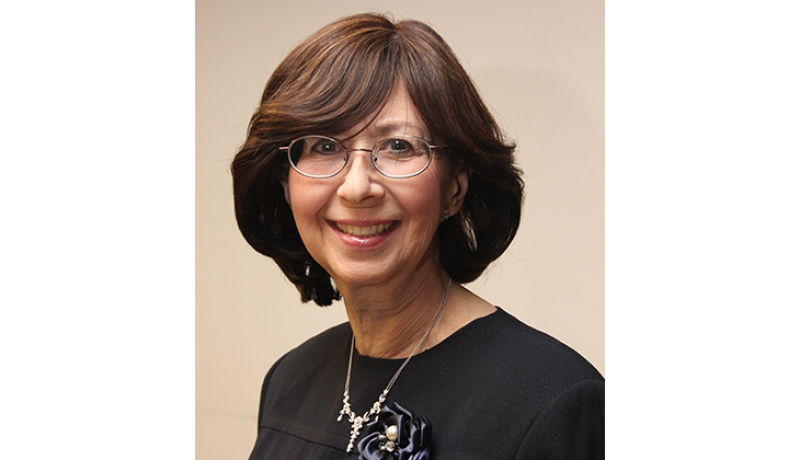Jeanne Abrams Inducted Into Colorado Authors’ Hall of Fame

When Jeanne Abrams retires from her position at the University of Denver, she will have been with the University for longer than most DU students have been alive.
With nearly 42 years of service to DU, Abrams’ breadth of work spans her time as a history professor, director of the Beck Archives and director of the Rocky Mountain Jewish Historical Society (RMJHS), housed within the University’s Center for Judaic Studies.
This month, Abrams was honored for more than just her work as an academic—she was inducted into the Colorado Authors’ Hall of Fame on Sept. 11, joining the likes of horror icon Stephen King and the late musician John Denver.
“It's a great honor to me, because since I was a child, books have been the center of my life,” Abrams says.
Born in Stockholm to two Holocaust survivors, Abrams came to the United States when she was less than a year old. She recalls her parents’ emphasis on education as a driving factor in her interest in books and remembers the library she visited as a child being the place where her passion grew.
“My parents didn't have a car. We were in a relatively small town—it was a good half-hour walk to the library,” Abrams says. “We walked that walk once a week, because you were only allowed four books at a time, to take out.”
Each week, she would finish her four books and return them to the library, eager to swap them out for something new. When Abrams was 12 years old, her uncle gifted her a typewriter. She learned to type and began furiously trying to type out and copy the tomes she loved most, so that she could have her very own version. It was the beginning of a life-long love affair with literature.
“It really is very special that I would be honored as an author, because it was something that I never thought would happen, but something I must have aspired to since the day I learned to read in kindergarten,” Abrams says.
Much of Abrams’ work centers on three topics: the Founding Fathers of the United States, the American Jewish diaspora and early American medicine.
“I think the founding of America really resonated with me, being an immigrant whose parents had really experienced one of the most horrendous episodes in world history,” she says. “And America did become a haven, and I think that's something that spoke to me.”
Abrams’ doctoral dissertation, which she gave during her time as a PhD candidate at the University of Colorado Boulder, was on the Jewish Consumptives' Relief Society (JCRS), a tuberculosis sanatorium founded in Denver in 1904, a time when tuberculosis was the leading cause of death among Americans.
“That's where all those crossroads of my interests started to emerge,” Abrams reflects. “JCRS history is not only about TB care—it's about American Jewish history. It's about women's history, it's about social history, it's about immigration history. And so, all of a sudden, I had all these threads that hadn't been part of my repertoire before.”
Abrams says she sees her three most recent titles—“Revolutionary Medicine: The Founding Fathers and Mothers in Sickness and in Health,” “First Ladies of the Republic: Martha Washington, Abigail Adams, Dolley Madison, and the Creation of an Iconic American Role,” and “A View from Abroad: The Story of John and Abigail Adams in Europe”—as a sort of trilogy, unique investigations into the lives of the founding fathers and their lives.
In “Revolutionary Medicine,” Abrams says she wanted to use the story of the founding fathers’ medical histories and various ailments as a stepping stone to looking at American medicine in the 18th century.
“There’s a wonderful story about [Benjamin] Franklin and [John] Adams—who was a great hypochondriac and lived the longest of any of them, into his mid 90s, which was unusual at the time,” Abrams says. “Both of them were sharing a room at an inn during the American Revolution, and Franklin was manic about fresh air. He took what he called open air baths in the nude every morning.
So, he kept opening the windows, and Adams, who felt you might get sick by having the windows open, closed them. Up and down, both of them, apparently all night, opening and closing the windows, and Adams said he got lectured so many times, and frankly, he just got bored, and he finally fell asleep with the windows open.”
In her retirement, Abrams says she’s looking forward to spending time with family. She’ll stay connected to the classroom—but not in a traditional sense. History and publishing aren’t her only loves; she wants to take a botanical illustration course at the Denver Botanic Gardens.
“I was a history major in school, but I was an art minor,” she says, laughing.
Abrams will retire from the University of Denver in February 2024.


